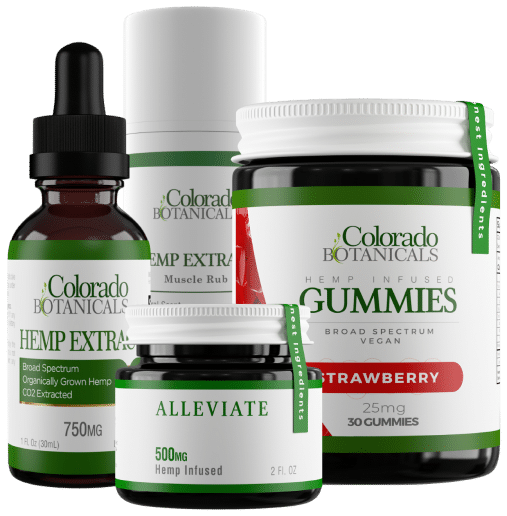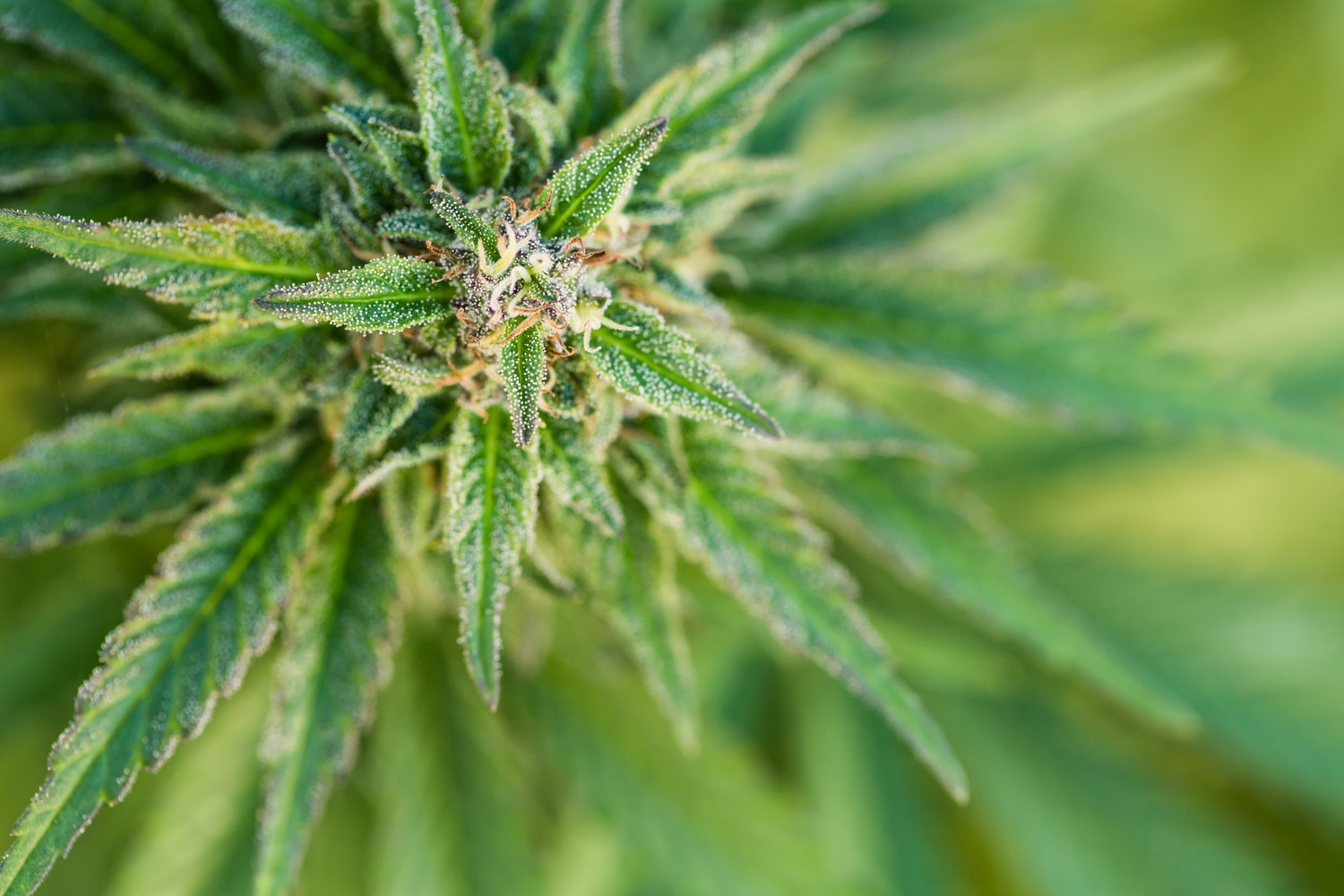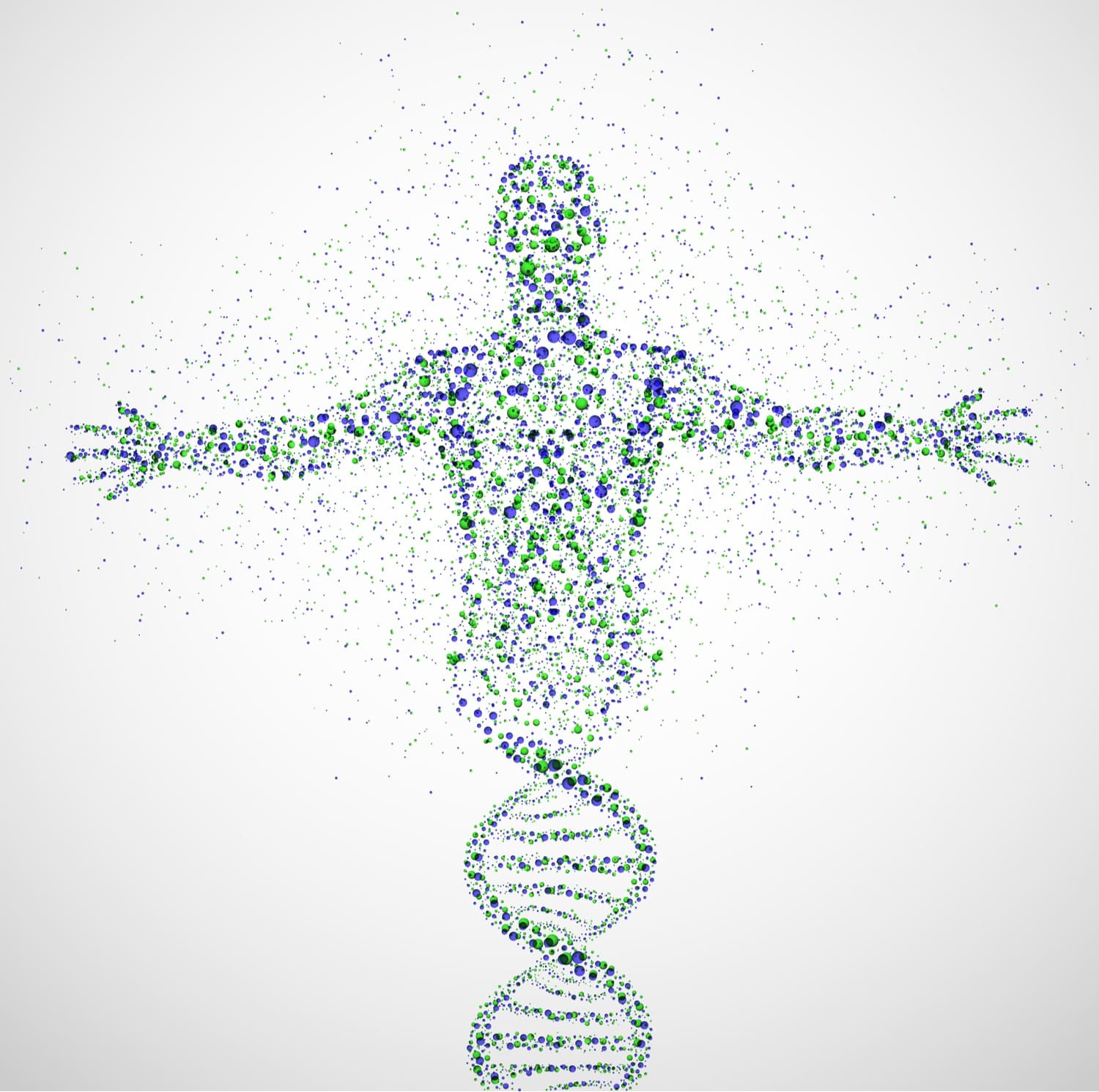Cannabis plants have been a medicinal staple for thousands of years – long before human research uncovered the body’s endocannabinoid system. A seeming jack-of-all-trades, the over 100 known cannabinoids and 400 terpenes discovered in cannabis reportedly relieve a broad range of symptoms.
The unique ability of Cannabis sativa L. to induce a ravenous appetite is a comedic trope. Typically referred to as “the munchies,” cannabis consumers use it to describe how THC increases appetite.
A federally legal “hemp” cannabis cultivar is a popular source of CBD oils, CBD gummies, and similar extract products. Considering CBD and THC are from the same plant species, could the health benefits of CBD have anything in common with its intoxicating counterpart? What role does CBD play in regulating hunger, and how – if at all – does it stimulate appetite?
What is the Difference Between CBD and THC?
CBD and THC are different in many ways. Unlike THC, CBD has no intoxicating psychoactive effects. This was a key selling point that drove interest in the beneficial effects of CBD products.
Cannabidiol is also safe to use at any age, while THC can harm brain development in youths. In the last few years, the World Health Organization declared CBD safe to consume with no potential for abuse.
A CBD prescription drug called Epidiolex is also available to treat severe epilepsy in children and toddlers.
CBD’s mechanism is also radically different from THC’s. We’re going to cover this in detail later. The main point is that THC binds with our body’s CB1 and CB2 ECS receptors, while CBD doesn’t directly interact with them.
THC, however, offers a bit more versatility. While CBD’s lack of intoxicating effects makes it best as a natural supplement remedy, THC’s “high” may have recreational and therapeutic applications.
This brings us to the last significant difference: legality. Although most states allow medical cannabis for those who qualify, a sweeping number recently voted to legalize recreational marijuana.
CBD, on the other hand, is federally legal. However, a few states limit or restrict hemp-derived cannabis products due to their “guilt by association” with THC.
What are Some Similarities Between CBD and THC?
Although CBD and THC differ in most respects, they share some common attributes. Both cannabinoids may contribute to a healthy appetite – albeit to different degrees.
CBD and THC are also molecularly identical, despite their radically different effects. Both contain the same type and number of atoms, but the arrangement of those atoms is what determines each cannabinoid’s effects.
CBD and THC are both exclusive to the cannabis sativa L. plant species, which is why they are considered “phytocannabinoids” – cannabinoids found outside our bodies. Endocannabinoids – produced and regulated by our endocannabinoid system – aren’t found elsewhere.
CBD and THC Hunger Differences
THC is strongly associated with appetite stimulation. The infamous “munchies” are a comedic trope in many shows and movies. CBD’s effect on appetite, however, isn’t as clear.
THC
THC’s intense “munchies” can lead to substantial food intake, often ending in a seemingly mismatched blend of snacks.
The cannabinoid’s ability to boost appetite results from the crucial hunger hormone ghrelin. An empty stomach triggers ghrelin production, informing your brain that it’s time to eat.
By binding to the CB1 endocannabinoid system (ECS) receptors in our central nervous system, THC skyrockets ghrelin production, leading to a dramatically increased appetite that can also ease nausea symptoms.
THC also increases dopamine, increasing feelings of pleasure and seemingly improving food flavor.
Unfortunately, people often gravitate to fatty foods after smoking cannabis. Without food moderation, some THC users could experience weight gain.
CBD
CBD-induced hunger – as we’ll demonstrate next – isn’t even confirmed, let alone understood. But while it may help appetite, its effects on appetite seem to lean away from THC, being more of a suppressant than a stimulant.
Does CBD Make You Hungry?
There’s a lot of anecdotal evidence suggesting CBD can help encourage appetite, specifically by allegedly reducing nausea. However, evidence is unclear whether – or how much – CBD makes you hungry.
According to a review published in Frontiers in Endocrinology:
“Previous studies investigating the impact of CBD on food intake showed contradictory results. One study demonstrated CBD-induced (2.5 and 5 mg/kg) decrease in body weight gain in rats, while other studies have shown no significant impact on food intake and body weight in mice and rats” (Bielawiec et al., 2020).
Other research, such as a 2015 paper in Epilepsy Behavior, examined CBD’s efficacy against severe childhood epilepsy. Parents were pleased with the antiepileptic benefits, but 30% also reported an increase in their child’s appetite after using CBD oil (Hussain et al., 2015).
CBD may counter the appetite-reducing effects or nausea triggered by many antiepileptic drugs (AEDs).
So does CBD make you hungry? There’s evidence to support this claim, but also research that diminishes or refutes it. Personal experience is the only way to know how CBD affects your appetite.
Why Does CBD Make You Hungry?
Although we understand how THC triggers hunger, the mechanism for CBD isn’t clear. According to registered dietician Janice Newell Bissex, CBD’s appetite-boosting ability may be a side benefit from addressing other symptoms rather than an isolated therapeutic effect.
For instance, Bissex explains that CBD may reduce nausea, which will encourage eating. Bissex also believes that CBD’s potential ability to relieve other symptoms, like pain, may also contribute to increased appetite.
This might explain why animal studies and surveys show appetite-suppressing effects in otherwise healthy individuals.
Can CBD Suppress Appetite?
Yes, CBD products can suppress appetite. Research vaguely supports CBD’s use as an appetite stimulant, but appetite suppression is another story.
CBD is complex on its own, but its effects are more diverse and intense when coupled with certain cannabis plant compounds.
Specifically, large amounts of appetite-suppressing terpenes, like humulene, can discourage eating.
Additionally, the research we covered above indicates that CBD is more likely to suppress appetite than trigger it unless it helps alleviate symptoms that harm appetite.
Other Ways CBD Can Help With Hunger and Appetite Stimulation
Poor appetite is a symptom of something bigger. Issues with mental or physical health often trigger it. Fortunately, evidence suggests that CBD can mitigate issues that often lead to appetite loss.
Stress
Many consumers use CBD products to relieve stress. The Journal of Cannabis Research conducted an online survey of 387 CBD users. Based on the responses, the top four reasons for CBD consumption were anxiety (42.6%), sleep issues (42.5%), stress (37%), and general wellness (37%) (Moltke et al., 2021).
Anxiety
According to the above study, anxiety is a top reason – if not the principal reason – people consume CBD.
Everyone experiences anxiety at some point, be it causal (such as a job interview) or clinical. Being in this state of “fight or flight” makes our body focus its resources on addressing the perceived threat. Even if you’re hungry, sudden anxiety shuts down your appetite.
If CBD addresses the anxiety, your desire to eat may also return.
Stomach Discomfort and Indigestion
Naturally, nobody wants to eat when they have stomach issues. The very sight or smell of food could be off-putting. Relieving these symptoms will help restore appetite.
As Janice Bissex explains, “CBD [may help] relieve nausea and can calm your nervous system and digestive tract.”
Inflammation
Inflammation is often synonymous with pain. One study examined CBD’s effects on pro-inflammatory cytokines, compounds in the body responsible for immune system modulation.
They found that CBD reduced the level of those cytokines, hampering the body’s inflammatory response in the process (Atalay et al., 2019).
Reducing inflammation helps relieve pain in some instances. Eliminating inflammation will make it easier to focus on eating rather than dealing with the constant discomfort and stress accompanying inflammation.
Can CBD Oil Help You Lose Weight?
After everything we’ve covered, it’s hard to fathom how CBD could simultaneously be an appetite suppressant and stimulant.
The catch about cannabis and appetite is that cannabinoids like CBD and THC aren’t the only driving factors. Some terpenes – oily aromatic plant compounds found in all vegetation – can reduce or eliminate appetite.
Humulene (a-caryophyllene) is a known appetite suppressant. When present in large enough amounts, this terpene could reduce food intake – even with large amounts of THC. This variable suggests some CBD products can significantly lower body weight and assist with general weight loss.
But appetite isn’t the only factor. Cannabidiol may also help eliminate unhealthy white fat. Some evidence suggests that CBD helps convert white fat into brown fat, which is less dense. So while carrying more brown fat cells than white ones helps us look skinnier, CBD won’t burn it off.
CBD for weight loss requires a healthy diet and exercise to eliminate fat. Otherwise, the appearance of weight loss is cosmetic and won’t make you any healthier.
What Consumers Say About CBD and Appetite
Anecdotal reports may not hold the same weight as scientific studies. But some customer reviews demonstrate the same pattern of cause and effect between symptom relief and appetite stimulation with CBD.
According to “Yoshie R.”
“My dog…has regained appetite and seems to be sleeping better! CBD oil seems to be helping him walk more without pain. I will continue the product. Thank you!”
“Emir I.” is also pleasantly surprised:
“The dosage is low, but when taken with the other gummies, it works well to relax my mind and get me hungry.”
On the other hand, “Jessica S.” was surprised by the appetite-suppressing effects CBD had on her dog, saying:
“My 10 yo GSD had been on Prednisone for a year for back/hip pain. The steroid increased his hunger to where I was feeding him 4x a day…I started supplementing this CBD oil, and it’s done almost as well as the steroid. The insane hunger is gone. I don’t have to worry he’ll get pancreatitis – another strong possibility with extended Prednisone use.”
Can CBD Oil Help You Achieve Your Fitness Goals?
It’s possible that taking CBD can play a role in helping you lose weight by regulating hunger. But weight loss and fitness aren’t mutually inclusive.
CBD isn’t going to get you shredded in three weeks, but many athletes use it for general wellness. Additionally, many consumers say hemp-derived CBD topicals are handy for muscle inflammation and recovery.
Another consideration is how CBD affects energy levels. Some say it’s sedating, while others use it as a gentle stimulant. So which is it?
Like appetite, CBD’s effects on energy are tied to other underlying symptoms. People experiencing chronic pain aren’t going to feel motivated to hit the gym. Stress and anxiety also sap our motivation, making it challenging to stick to a fitness routine.
But if CBD can mitigate those issues, consumers will be more capable of fulfilling their fitness goals.
Does Full-Spectrum or Broad-Spectrum CBD Make You More Hungry?
The difference between full-spectrum and broad-spectrum CBD is THC content. The former contains up to 0.3% THC, while the latter carries none.
Considering THC’s vastly superior ability to trigger hunger, we can theorize that a product with some THC may be marginally more effective at increasing appetite.
Does Smoking CBD Make You Hungry?
Smoking CBD might make you hungry. It depends on whether or not you’re dealing with symptoms that affect appetite, such as nausea, anxiety, or pain.
But CBD flower or vape products won’t increase appetite at a level comparable to THC. Again, unless the CBD addresses an appetite-reducing symptom, chances are you’ll feel less hungry.
Ways of Taking CBD to Help With Hunger
CBD Oil
CBD oil is the go-to for long-time users. Made of full-spectrum, broad-spectrum, or isolate, the hemp-derived CBD extract is infused into a fatty carrier, like MCT oil.
Users take the CBD oil sublingually for about 60 seconds, then swallow. Once consumed, the product can take up to an hour before you notice any effects. However, those benefits can last up to eight hours.
Topical CBD
As the name implies, topical CBD products are applied to the skin directly on the affected area. Topicals are excellent for focal relief, but CBD doesn’t penetrate into the bloodstream. Consequently, topicals won’t help encourage weight gain or weight loss.
Smoking
Inhaling CBD is famous for its immediate effects and authentic smoking experience. Available in dried flower or vaporizer oil, the impact is virtually instant. Unfortunately, the tradeoff is that smoked CBD wears off within two to three hours.
Final Thoughts: Does CBD Oil Make You Hungry?
Yes, CBD oil makes you hungry, but not through any direct means. While THC targets the CB1 receptors and triggers hunger hormones, CBD is more likely to reduce appetite.
However, hunger will eventually return when taken with other appetite-impacting symptoms, like pain, nausea, anxiety, or inflammation.
Research into CBD and appetite is limited, but future research may discover the connection between CBD and hunger – if any.









